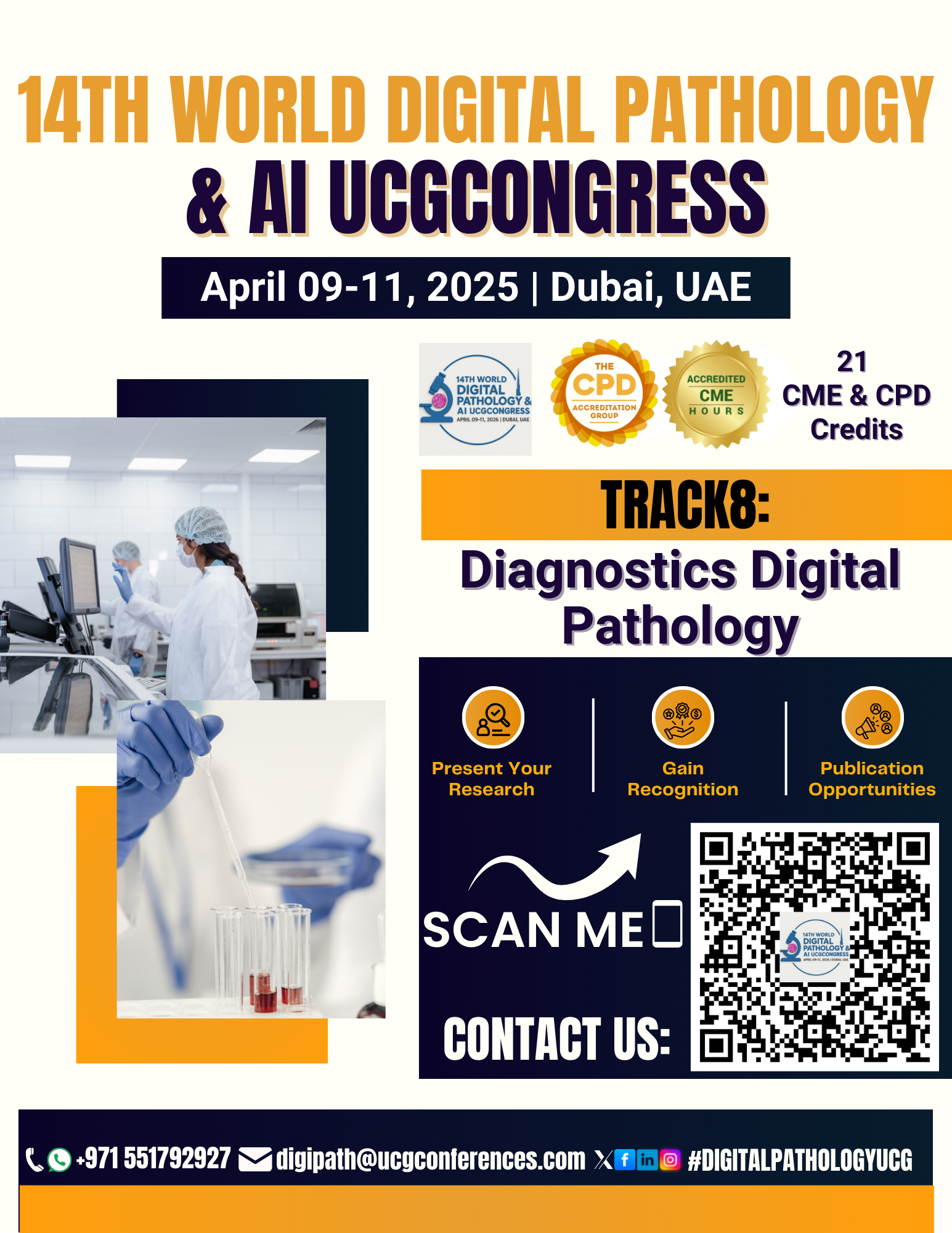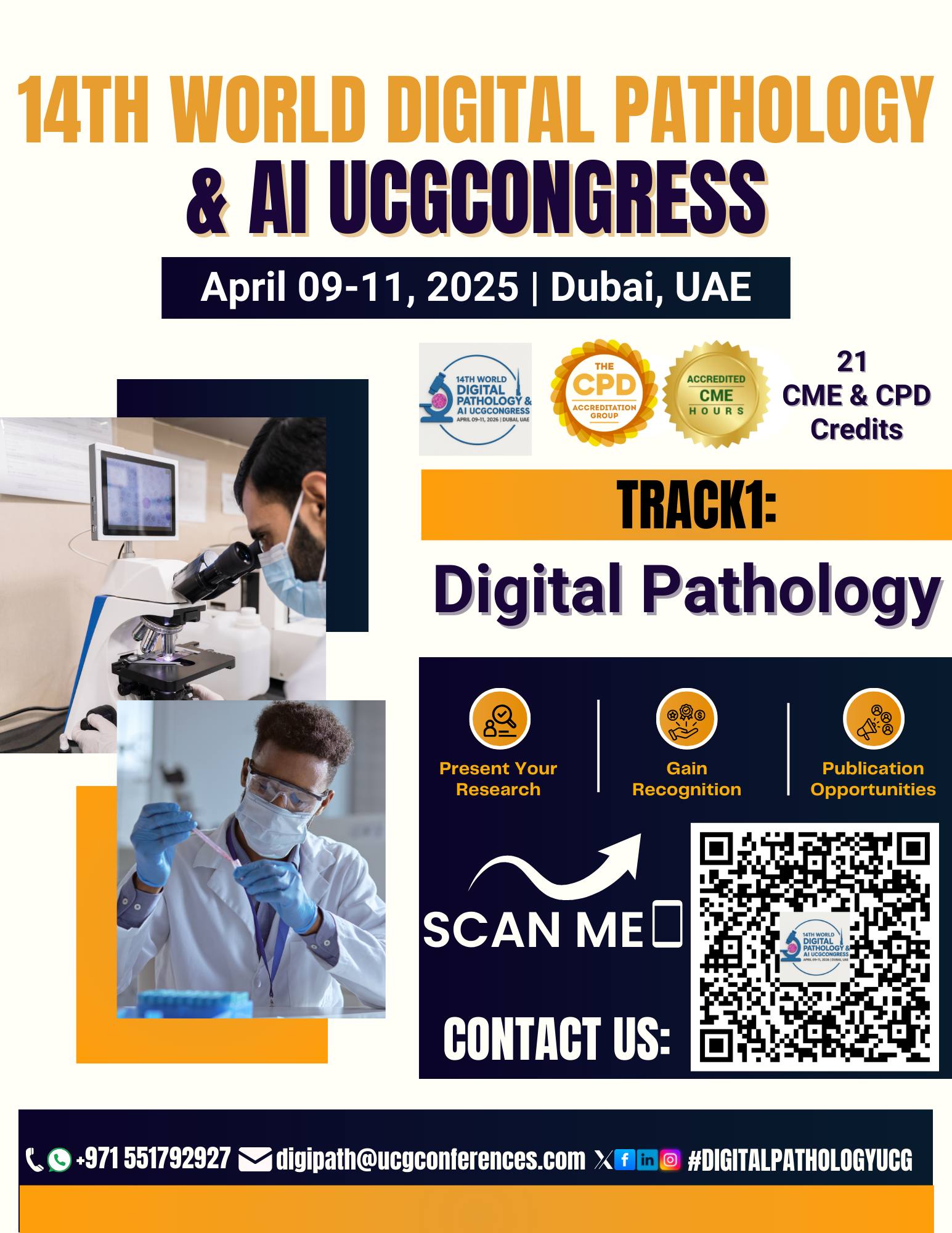



Sub track:-
Enhanced Image Quality Quantitative Analysis, Faster Turnaround Times,...

Sub track:-
Integration of Imaging Modalities, Advanced Image...

Track Overview:
Digital
pathology is revolutionizing the field of diagnostics by providing pathologists
with advanced tools for image analysis, data integration, and remote
collaboration. This track will explore how digital pathology enhances
diagnostic accuracy, enables faster decision-making, and improves patient
outcomes through innovative techniques and technologies. Attendees will learn
about the latest advancements in diagnostic imaging, data management, and the
integration of digital tools into routine pathology workflows.
Key Topics:
Whole
Slide Imaging (WSI) in Diagnostics: Exploring the benefits of WSI for
high-resolution image capture, archiving, and digital consultation.
AI
and Machine Learning in Diagnostics: Leveraging AI to enhance diagnostic
accuracy through automated image analysis, tumor detection, and predictive analytics.
Digital
Pathology for Disease Classification: Using digital tools to classify
diseases, such as cancers, based on histopathological images, biomarkers, and
molecular data.
Telepathology
and Remote Diagnostics:
Enabling pathologists to provide diagnoses remotely, improving access to expert
pathology services, especially in underserved areas.
Data
Integration and Interpretation:
Combining digital pathology data with other diagnostic modalities, such as
genomics and radiology, for comprehensive disease characterization.
Clinical
Validation and Standardization:
Ensuring that digital pathology tools are clinically validated and adhere to
regulatory standards for widespread use in diagnostics.
Learning
Objectives:
Gain
insights into how digital pathology tools are enhancing diagnostic workflows
and improving accuracy.
Learn
about the role of AI and machine learning in automating and improving
diagnostic processes.
Understand
the integration of digital pathology with other diagnostic techniques, such as
genomics and radiology.
Explore
the benefits of telepathology and remote diagnostics in expanding access to
pathology services.
Understand
the clinical validation and regulatory aspects of digital pathology tools.
Target
Audience:
Pathologists,
laboratory professionals, healthcare technology experts, clinicians, and anyone
involved in diagnostic workflows and digital health technologies.
Speakers/Presenters:
Experts
in digital pathology, AI applications, and diagnostic imaging.
Researchers
in disease classification, biomarker discovery, and telepathology.
Healthcare
professionals focused on integrating digital pathology into clinical practice.
Conclusion:
This
track will highlight the transformative impact of digital pathology on
diagnostics, demonstrating how cutting-edge tools and technologies are
improving the speed, accuracy, and accessibility of pathology services. It will
focus on AI, image analysis, and data integration to enhance disease detection
and patient care.